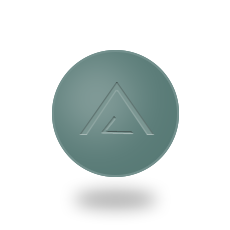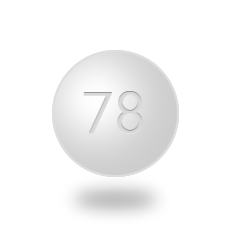Alesse
Alesse is a prescription medication used as an oral contraceptive, commonly known as a birth control pill. It is a combination hormonal pill that contains two types of hormones: ethinyl estradiol (an estrogen) and levonorgestrel (a progestin).
The combination of these hormones works to prevent pregnancy by primarily inhibiting ovulation (the release of an egg from the ovary). Additionally, Alesse thickens cervical mucus, making it more difficult for sperm to reach an egg, and alters the uterine lining to make it less receptive to implantation.

Uses
Medicine is primarily used as an oral contraceptive, commonly known as a birth control pill. Its primary purpose is to prevent pregnancy by inhibiting ovulation (the release of an egg from the ovary). In addition to contraception, Alesse might also be used for other medical purposes or conditions:
- Regulating Menstrual Cycles: Drug can help regulate irregular menstrual cycles, making periods more predictable.
- Reducing Menstrual Pain: Some individuals experience relief from menstrual cramps and other discomforts associated with menstruation when taking Alesse.
- Treatment of Acne: In some cases, medicament might be prescribed to help improve acne in individuals who are seeking contraceptive options.
- Hormone Replacement Therapy (HRT): Occasionally, Alesse might be used as part of hormone replacement therapy in menopausal women to manage certain symptoms.
When used as directed and taken consistently, Alesse is highly effective at preventing pregnancy. However, no contraceptive method is 100% foolproof. There is still a small failure rate associated with birth control pills, even when taken correctly. Factors such as missing doses, certain medications, illness, or digestive issues (vomiting or diarrhea) can decrease the effectiveness of birth control pills, including Alesse.
How to use
- Start on the First Day of Menstruation or Sunday Start: You can start taking Alesse on the first day of your period or on the Sunday following the start of your period. If you begin on the first day of your period, you are immediately protected against pregnancy. If you start on a Sunday, use an additional form of contraception for the first seven days.
- Take Alesse Daily: Take one tablet every day at the same time each day. Follow the order of the tablets in the blister pack. Most packs contain 21 active tablets (hormone-containing) and seven inactive tablets (placebo or iron-containing). Take one active tablet each day for 21 days, followed by one inactive tablet daily for the next seven days.
- Swallow Whole: Take the tablets whole with water. Do not crush or chew them.
- Consistency is Key: Try to take the pill at the same time every day to maintain its effectiveness.
- Use Backup Contraception (if necessary): If you miss a dose or start the pack late, use a backup contraceptive method (e.g., condoms) for the next seven days.
- Continue the Cycle: After finishing a pack, start a new pack the following day. You should start a new pack even if you haven't finished the previous one and even if you are still bleeding.
Side Effects
Some common side effects associated with Alesse may include:
- Nausea: Feeling queasy or experiencing an upset stomach, especially when starting the medication.
- Headaches: Mild to moderate headaches might occur, especially during the first few cycles of using Alesse.
- Breast Tenderness: Some individuals might experience breast tenderness or swelling.
- Irregular Bleeding: This might include spotting between periods or changes in menstrual flow.
- Mood Changes: Some individuals might notice changes in mood, although these are relatively rare.
- Weight Changes: Ethinyl estradiol and levonorgestrel may cause slight weight changes in some individuals.
- Changes in Libido: Some individuals might experience changes in sex drive.
- Skin Changes: Medication might impact skin health, leading to acne improvements or, in some cases, skin issues.
- Vaginal Discharge or Irritation: Some women might experience changes in vaginal discharge or irritation.
- Blood Clotting Risk: Birth control pills may slightly increase the risk of blood clots, especially in women who smoke or have other risk factors.
It's important to remember that serious side effects with Alesse are relatively rare. However, certain symptoms should prompt immediate medical attention. These include:
- Severe abdominal pain
- Chest pain or shortness of breath
- Severe headaches
- Sudden vision changes
- Severe leg pain or swelling
Contraindications
Some contraindications or situations where caution is advised when using Alesse include:
- Pregnancy: This birth control pill is contraindicated during pregnancy. It should not be taken if a person is pregnant or suspects they might be pregnant.
- Breastfeeding: It's generally recommended to avoid Alesse while breastfeeding, as hormones in the medication can pass into breast milk and potentially affect the infant.
- History of Blood Clots: Individuals with a history of blood clots in the legs (deep vein thrombosis), lungs (pulmonary embolism), or other clotting disorders may have an increased risk of developing blood clots while using hormonal contraceptives.
- Cardiovascular Conditions: Drug may not be suitable for individuals with certain heart conditions, such as heart valve disorders, a history of heart attacks or strokes, uncontrolled high blood pressure, or other cardiovascular issues.
- Liver Disease: Severe liver disease or liver tumors might make the use of Alesse inadvisable.
- Smoking and Age: Women over 35 who smoke heavily are generally advised against using combination hormonal contraceptives due to an increased risk of blood clots.
- Uncontrolled Hypertension: Medicine might not be recommended for individuals with uncontrolled high blood pressure.
- Migraines with Aura: Individuals who have migraines with aura may be at a higher risk of stroke while using hormonal contraceptives.
- Allergic Reactions: Anyone who has had allergic reactions to the ingredients in ethinyl estradiol and levonorgestrel should avoid using this medication.
Pregnancy and Alesse
If you suspect that you might be pregnant while taking Alesse or if you miss a period while using this contraceptive, it's essential to consider the possibility of pregnancy and take a pregnancy test to confirm or rule out pregnancy. Additionally, if you suspect pregnancy or experience symptoms like nausea, breast tenderness, fatigue, or unusual changes in your menstrual cycle, consult your healthcare provider for further evaluation and guidance.
It's important to note that Alesse is not intended for use during pregnancy. If a woman becomes pregnant while using this birth control pill, she should stop taking the medication.
Always use additional forms of contraception or practice abstinence if there is a chance of pregnancy and you're uncertain about the effectiveness of your birth control method.
Drug Images

Related Drugs
Ortho Tri-Cyclen
Conditions:
Birth Control

Ovral
Conditions:
Birth Control

Plan B
Conditions:
Birth Control

Yasmin
Conditions:
Birth Control




